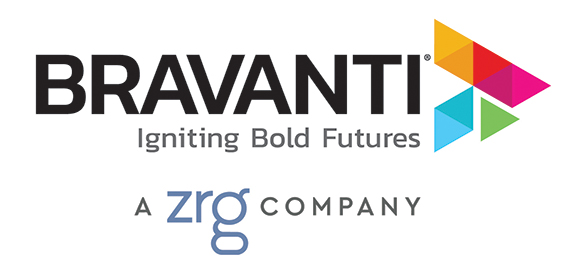By Bravanti
The adoption of coaching cultures is a fast-growing movement among some of the world’s leading organizations and offers the impact of individual coaching at scale, bringing the positive effects of coaching to the wider organization.
Coaching is traditionally a benefit reserved for top leaders and executive teams, but times have changed and companies are seeking to replicate the successes of individual and group coaching across their workforces. And for good reason.
A study by the Human Capital Institute (HCI) and the International Coach Federation (ICF), Building a Coaching Culture for Change Management, found that organizations with strong coaching cultures are more than twice as likely to also be labeled as high-performing organizations.
What is a Coaching Culture?
Before we examine how a coaching culture can transform your organization, let’s first discuss what a coaching culture is.
A coaching culture is when an organization leverages the core principles and practices of coaching across its workforce. Accredited coaches help to establish norms, behaviors, and mindsets that align with the principles of coaching while training leaders to also coach their own teams for higher-impact results.
Developing a coaching culture is one of the strongest culture change initiatives a company can undertake, as it perpetuates positive developmental concepts and activities throughout the workforce.
The Transformational Benefits of Coaching Cultures
So, how do coaching cultures transform ordinary companies into high-performing organizations?
Accelerates individual learning
Coaching, especially when combined with feedback, helps to accelerate learning by guiding coachees through proven problem-solving techniques rather than providing solutions directly. This helps to encourage self-awareness, solidify learning, and allow for truly individualized solutions.
In this way, coaching is a powerful tool that can greatly expand upon traditional learning and development methodologies by helping to reinforce new knowledge.
Improves efficacy of leaders and teams
Studies show that coaching reduces procrastination, leading to higher goal attainment, goal commitment, and goal self-efficacy. We won’t argue with the benefits of improved efficacy at the top, but what if you could scale that efficacy to the organizational level?
Doing so can broaden the impact on performance to the larger organization, cascading improved results throughout larger populations of the company for greater impact.
Creates a natural environment for leadership development
The events of the last few years have created a uniquely difficult environment for new leaders. The need for accelerated development has grown considerably, forcing first-time leaders to learn the ropes faster than their predecessors and in high-stress conditions. Helping individuals and teams at all levels do the same can only benefit leadership pipelines and the organization as a whole.
Improves agility in times of change
Research from the Human Capital Institute (HCI) and the International Coaching Federation (ICF) shows that communication, leadership, and planning are the primary drivers for executing a successful change initiative. Coaching is a proven methodology for developing these skills in individuals and teams, creating a direct impact on an organization’s ability to thrive in complex, fast-changing environments.
Increases employee engagement, satisfaction, and retention
Lack of career transparency and professional development opportunities leads to disengagement, and are two of the top reasons cited by employees who have left or are considering leaving their jobs during the Great Resignation.
But promoting a coaching culture can help reverse this trend by helping developing leaders envision their career trajectories and the skills and behaviors needed to achieve their goals. And when a company invests in coaching to help their leaders advance, it promotes engagement, loyalty, and retention. In fact, the aforementioned study by HCI and ICF found that engagement within organizations with coaching cultures was considerably higher than those without (62% compared with 50%).
Improves collaboration, creativity, & innovation
Coaching cultures naturally create environments where curiosity and thinking outside the box are rewarded. Coachees are encouraged to think creatively and problem-solve via their own capabilities and working with others, rather than following a prescribed path.
By teaching teams to turn to themselves and each other for solutions to complex problems, organizations can benefit from the ingenuity of fresh perspectives that, without a coaching culture, are likely to get lost in red tape and old ways of doing things.
Drives transparency and accountability
Coaching cultures empower developing leaders to take ownership of their decisions , their work product, and their leadership trajectories. It creates a positive relationship with transparency and accountability by developing a psychologically safe working environment. In short, coaching cultures create a system that encourages employees to take responsibility for their individual performance while encouraging managers to fully utilize their coaching capabilities for maximum impact.
How Can a Coaching Culture Transform Your Company?
Our Executive Coaching practice is actively working with organizations across a wide variety of industries to implement coaching cultures. There’s no doubt about it—coaching cultures are here to stay.
To learn more about our Coaching Culture solutions, please contact us.
Content Related to How A Coaching Culture Can Transform Your Organization
Coaching: Never More Accessible – Or Essential – Than Now
Journeys in Leadership: A Video Series on Executive Coaching

